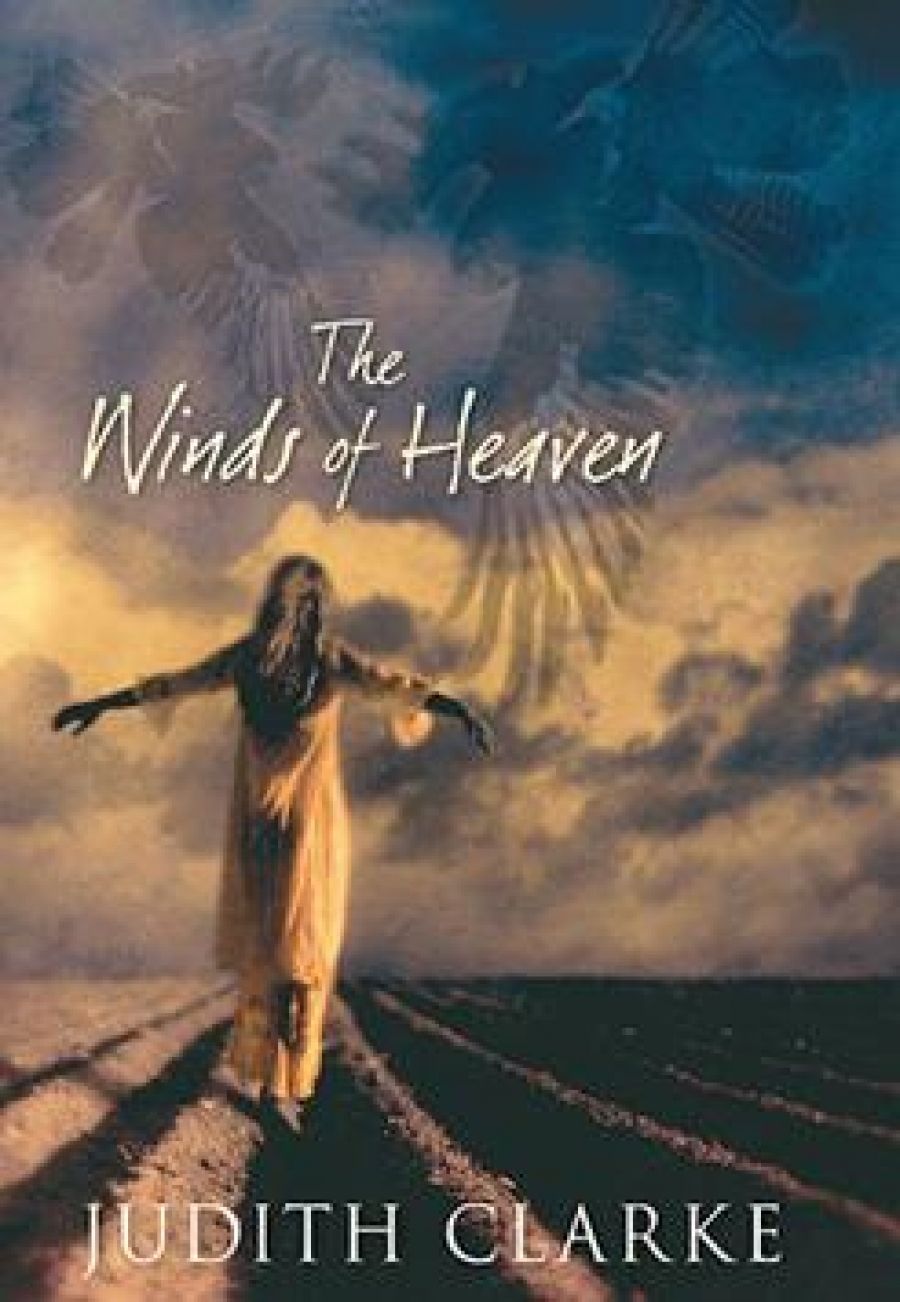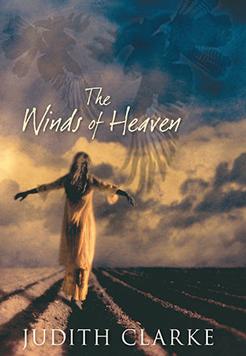
- Free Article: No
- Contents Category: Children's and Young Adult Fiction
- Review Article: Yes
- Article Title: Accidents of circumstance
- Online Only: No
- Custom Highlight Text:
Judith Clarke’s new novel for young adults, The Winds of Heaven, is a moving story about the strength and difficulty of friendship, and how accidents of birth, family and situation can combine to overwhelm the brightest spirit.
On her first trip to Lake Conapaira in 1952, ten-year-old Clementine meets her cousin Fan for the first time. Fan is a whirlwind: beautiful, impulsive and imaginative. Clementine is entranced by Fan’s strength and liveliness, and the two girls quickly become friends. But Fan’s childhood is a world away from Clementine’s cautious but loving family home. Stranded with her violent mother amid the prejudices of a country town, the beautiful Fan is labelled ‘stupid’ at school, and regularly beaten and emotionally abused by her depressive mother. Her sister has left home, and her father disappeared long ago. Fan fights for happiness, and fights hard. She has her miyan, or spiritual guardian, an elderly Aborigine who lives in the bush and tells her stories. He calls her Yirigaa, ‘Morning Star’, and is the only positive adult influence in her life. Clementine wants to stay with Fan, but the holiday draws to an end and she must return home, leaving Fan with her mother in the house that smelled of ‘anger and hatred and disappointment and jagged little fears’.
- Book 1 Title: The Winds of Heaven
- Book 1 Biblio: Allen & Unwin, $22.99 pb, 268 pp
- Book 1 Cover Small (400 x 600):

- Book 1 Cover (800 x 1200):

Clementine also contends with the cruelty of schoolteachers and the mediocre expectations of her parents in a town where wanting to go to university is considered ‘posh’. She writes to Fan, but never hears back. After an illness, Clementine is suddenly sent back to Lake Conapaira to recuperate. Things are different there now; Fan’s mother has lost that blackly dangerous edge and the strap no longer hangs ominously in the kitchen. Fan’s miyan has disappeared; she feels his loss keenly. Five years later, Fan is still Fan, but now she is chasing after boys. Once Clementine returns home, the girls’ friendship lapses again – Clementine gradually stops writing when she hears nothing back from Fan. In a letter from Fan’s mother, Clementine discovers that her fifteen-year-old cousin has married a local boy and will soon become a mother.
Trapped in a loveless marriage with a second baby, Fan’s life spirals into monotony and depression. After visiting her faded friend, Clementine always means to write again, but can’t think of anything to say. Fan rallies against her situation, but even small pleasures such as a book of poetry from the library are denied her. In desperation, Fan finally travels to the Blue Mountains, her childhood symbol of happiness.
Judith Clarke’s writing shines in this sad and beautiful novel. This is not a book to be read hurriedly; every page contains something worth savouring. Fan’s laughter seems ‘to fly upwards, like drops of bright water flung into the air’. Morning light is as ‘thin and grey as the gruel fed to orphans in fairy stories’. In Fan’s house, ‘the anger smelled like iron and the disappointment smelled like mud’. These evocative phrases occur at just the right intervals – as with a dégustation, the reader receives beautiful little ‘tastes’ but doesn’t come away feeling overfed.
Though The Winds of Heaven is less racial in focus, its themes of sisterhood, small-mindedness and the harshness of circumstance are reminiscent of Julia Lawrinson’s Bye, Beautiful (2006); Clementine and Fan are broadly similar to Lawrinson’s Sandy and Marianne. As in Bye, Beautiful, the women are often burdened with the realities of life. ‘Would it have been different if Fan had grown up in the city, instead of far away at Lake Conapaira? Or if she’d had a different family? If she’d married someone else instead of Gary? If things had gone better at school? If the old black man hadn’t gone away?’
Clarke’s story spans more than fifty years. While bookending the past-tense 1950s–1960s chapters with present-tense, present-day sections initially seemed unnecessary, they do carry a special resonance and purpose. As Clementine echoes Fan’s loving words about her children, we are left with a sense of hope for future generations. It is an uplifting finale that enhances this finely written novel.


Comments powered by CComment